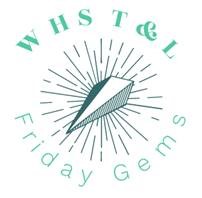Teaching and Learning Gem #37 – The Rosenshine Edit and Reflections from Claire Boyd
This week comes directly from EYFS and I think you’ll love the Junior focus.
Rosenshine’s Principle: Independent Practice
- Rosenshine says that students need extensive, successful, independent practice in order for skills and knowledge to become automatic.
- He calls this ‘overlearning’ – it allows students to become fluent in a skills, or to recall knowledge automatically without it taking up the working memory.
Thoughts from Claire
It is a real privilege to be able to contribute a Junior School – and specifically an Early Years Foundation Stage (EYFS) – perspective to this week’s Friday Gem. The EYFS is the first experience our children get of statutory education and culminates in assessment against 17 Early Learning Goals, defined as the essential building blocks a learner must acquire before commencing the National Curriculum. From giving “their attention to what others say and respond appropriately, while engaged in another activity” to answering “how and why questions about their experiences and in response to stories or events”, the goals are ambitious in both scope and reach. In order to confidently reach these important milestones, practitioners must be assiduous in the learning experiences they create for their pupils. When considered alongside Rosenshine’s principles of instruction, the multi-modal approaches that characterise EYFS practice come into sharp focus. The craft of the EYFS teacher is built around looking for meaningful environments to create space in which four and five year olds, not only acquire new skills and understanding but apply them independently in a range of contexts.
Take yesterday morning in one of our Junior School Reception; I arrived in a room abuzz with chatter, laughter and activity. 24 four and five year olds were spread out across all corners of the classroom and outdoor area. Ally (Reception Teacher & Assistant Head Lower Junior School) and Marketa (Teaching Assistant) were each engaged with a couple of the girls, giving feedback and posing open questions to probe the leaning from the earlier carpet session. Meanwhile, the rest of the class were happily doing their own thing; no teacher intervention, direction or instruction yet high levels of engagement and ‘flow’. To the untrained eye, what might at first glance look like an assortment of farm-themed play (it’s farmyard week in Reception this week), closer inspection reveals the overlearning needed to become fluent and automatic in a skill. Earlier teacher modelling and scaffolding of retelling stories and applying phonological awareness to writing new vocabulary was being practised independently; dealing with the same topics originally themes albeit with a slight variation. The attached photos capture magic of independent practice and serves as a pertinent reminder of how autonomous effective learning can be right from the very start of schooling.

